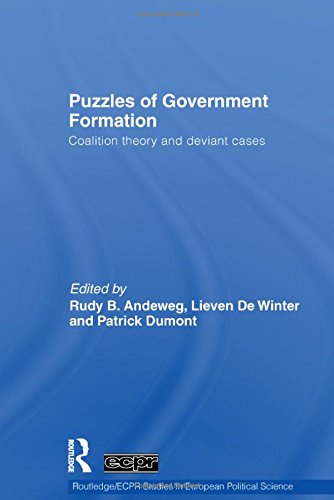

Most ebook files are in PDF format, so you can easily read them using various software such as Foxit Reader or directly on the Google Chrome browser.
Some ebook files are released by publishers in other formats such as .awz, .mobi, .epub, .fb2, etc. You may need to install specific software to read these formats on mobile/PC, such as Calibre.
Please read the tutorial at this link: https://ebookbell.com/faq
We offer FREE conversion to the popular formats you request; however, this may take some time. Therefore, right after payment, please email us, and we will try to provide the service as quickly as possible.
For some exceptional file formats or broken links (if any), please refrain from opening any disputes. Instead, email us first, and we will try to assist within a maximum of 6 hours.
EbookBell Team

4.0
66 reviewsUnderstanding the formation of governments has always been central to political science. Traditionally this topic has been considered from a rational choice theory perspective and the empirical testing of these theories; however neither approach alone is able to explain a large proportion of actual coalition formations.
This comparative volume brings together a rational choice theory perspective and the empirical testing of these theories to study government formation. It provides in-depth studies of government formations in Europe that cannot be accounted for by existing coalition theory in order to identify potential explanatory factors that have been neglected so far. These ‘coalition puzzles’ are reconstructed by country experts based on secondary sources, newspaper accounts, internal party documents, and interviews in an effort to understand why particular governments were formed. In conclusion, this book assesses whether new factors can be integrated into rational choice theories or whether these analyses point to the need for a different paradigm.
This important volume will be of interest to students and scholars of political science, European politics and comparative politics.